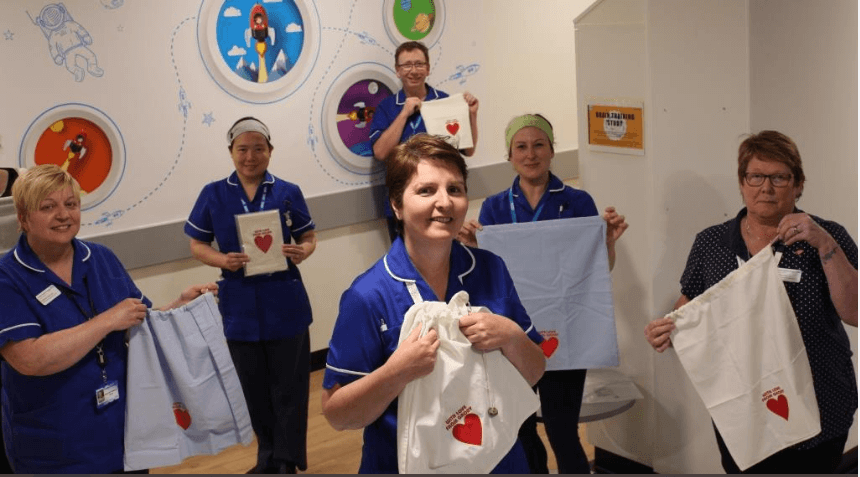
My COVID Story as a Clinical Research Nurse
Written by Rachael Phillips
Clinical Research Nurse, NIHR Leicester Clinical Research Facility
June 2020
“I feel the work I do gives hope to those who feel they have none and supports our frontline workers with information and interventions that will help rid us of this virus and I’m so proud to be part of it”
A new way of working
My day begins as I arrive at the office at the Leicester Royal Infirmary. I meet with the team and set out the day’s work. It has been very different since the lockdown. We all sit apart and complete as much as we can over emails and online meetings. We’ve had to pause our previous studies and open new COVID studies as quickly and effectively as possible.
There are teams from all over our Trust helping and supporting each over, and somehow we are managing to coordinate and work together. The research staff have had to adapt and be creative in approaching the new challenges that the COVID 19 virus has caused and every day I feel that I learn something new and deal with a new problem.

NIHR Leicester Clinical Research Facility Nurses (Rachael is second from right)
Adapting to Challenges
I have myself been working on COVID projects since early March and seeing patients with COVID from that point. One of my focuses has been the ISARIC study; I have helped coordinate recruitment across our three hospitals at Leicester and we have recruited over 1,000 patients so far.
For the majority of our work on COVID studies, we have become very visible working in the acute clinical areas, with very unwell patients. Meeting and recruiting on the wards in this setting is always physically and emotionally difficult. Now adding extra PPE and restrictions on visitation has opened new challenges. The COVID wards have been so busy and the patients have been so unwell yet healthcare workers are supporting each other and working together to reduce risk.
When you approach ward staff who are extremely busy and covered in PPE you have to be understanding of their situation and remember that their priority is not research. This has meant helping out by taking observations or making beds and trying to minimise our impact on their workload. The response has always been positive and the staff on the ward are interested in how the research is progressing.

Working with Patients
Approaching patients to join the study has been challenging.
Trying to explain and give a good account of the study to a patient who is so unwell and can’t see your face properly or hear you well is difficult.
We have had to negotiate changing standards of infection prevention and work together in teams to make sure samples and paperwork can be safely accessed and taken.
I have been coordinating staff across the 3 university hospitals of Leicester sites and trying to ensure all the team is working cohesively. So for me it has been learn it, teach it and then disseminate to the whole team. It’s been amazing working with new research teams all trying to achieve the same goals – understanding and beating COVID-19.
The patient journeys have varied between devastatingly sad, to filled with hope and happiness.
Part of ISARIC has a recovery visit where the participants who have been discharged return for blood tests – they often still feel very ill. The subjects and their families are always so grateful, and are so interested in the work of the research teams and how we are progressing. For the most part they all want to do more to help. It’s wonderful to be part of the journey of such brave and selfless people.
The Importance of Clinical Research
The days since the COVID outbreak have been challenging but as a nurse I recognise that this is what we do. When I decided to become a research nurse I did it in the knowledge that I wanted to help improve care and health in the UK and beyond. I have felt a great sense of the work that we do being vitality important to finding a way through this crisis. Research has a misconception of people locked in labs and offices, whereas this is not the case.
The work that has been done so far just by the researchers in our hospitals has showed that our commitment and hard work is on the frontline, helping patients where they need us most. I feel the work I do gives hope to those who feel they have none and supports our frontline workers with information and interventions that will help rid us of this virus and I’m so proud to be part of it.

The children’s research area at NIHR Leicester Clinical Research Facility




